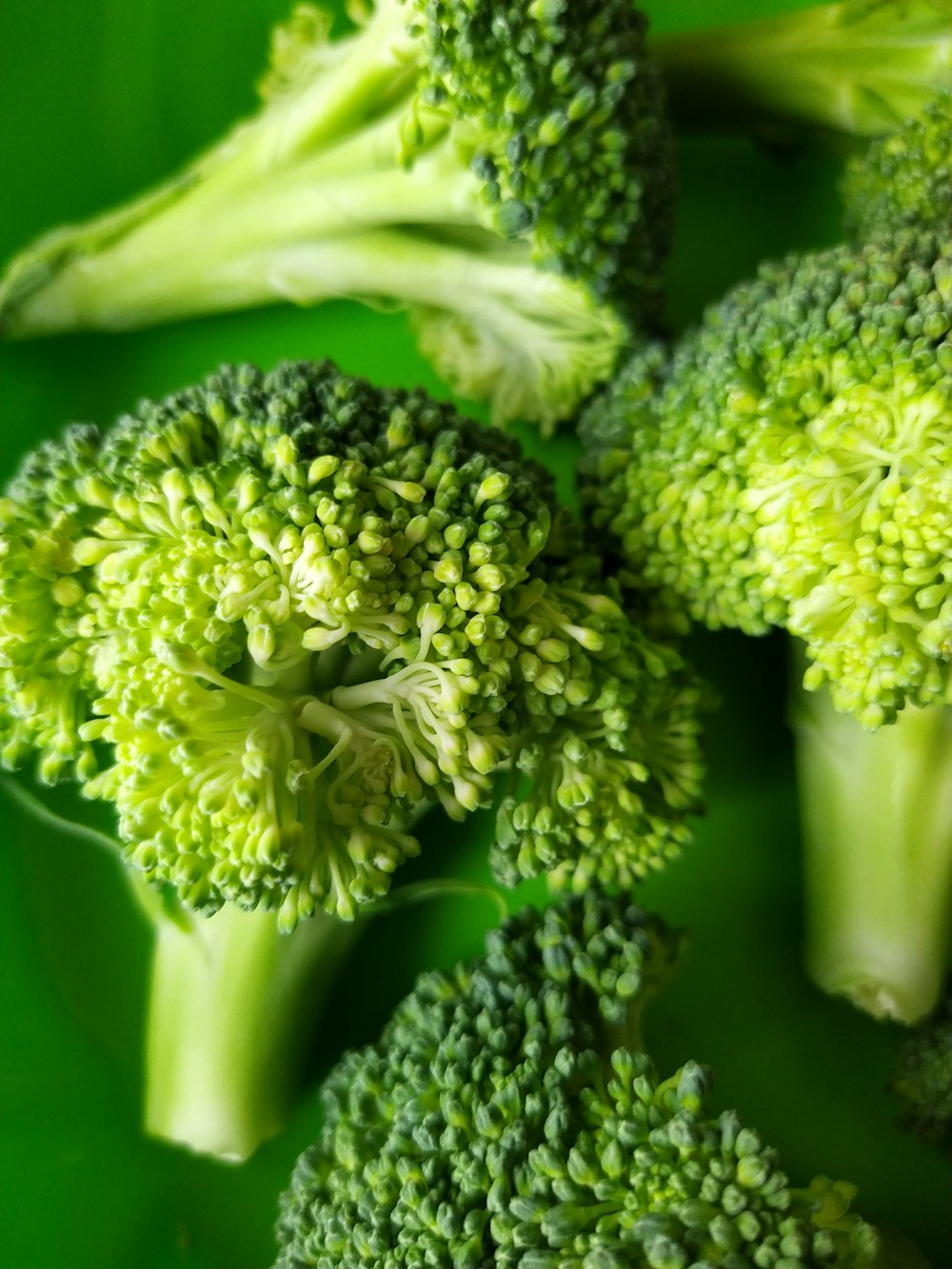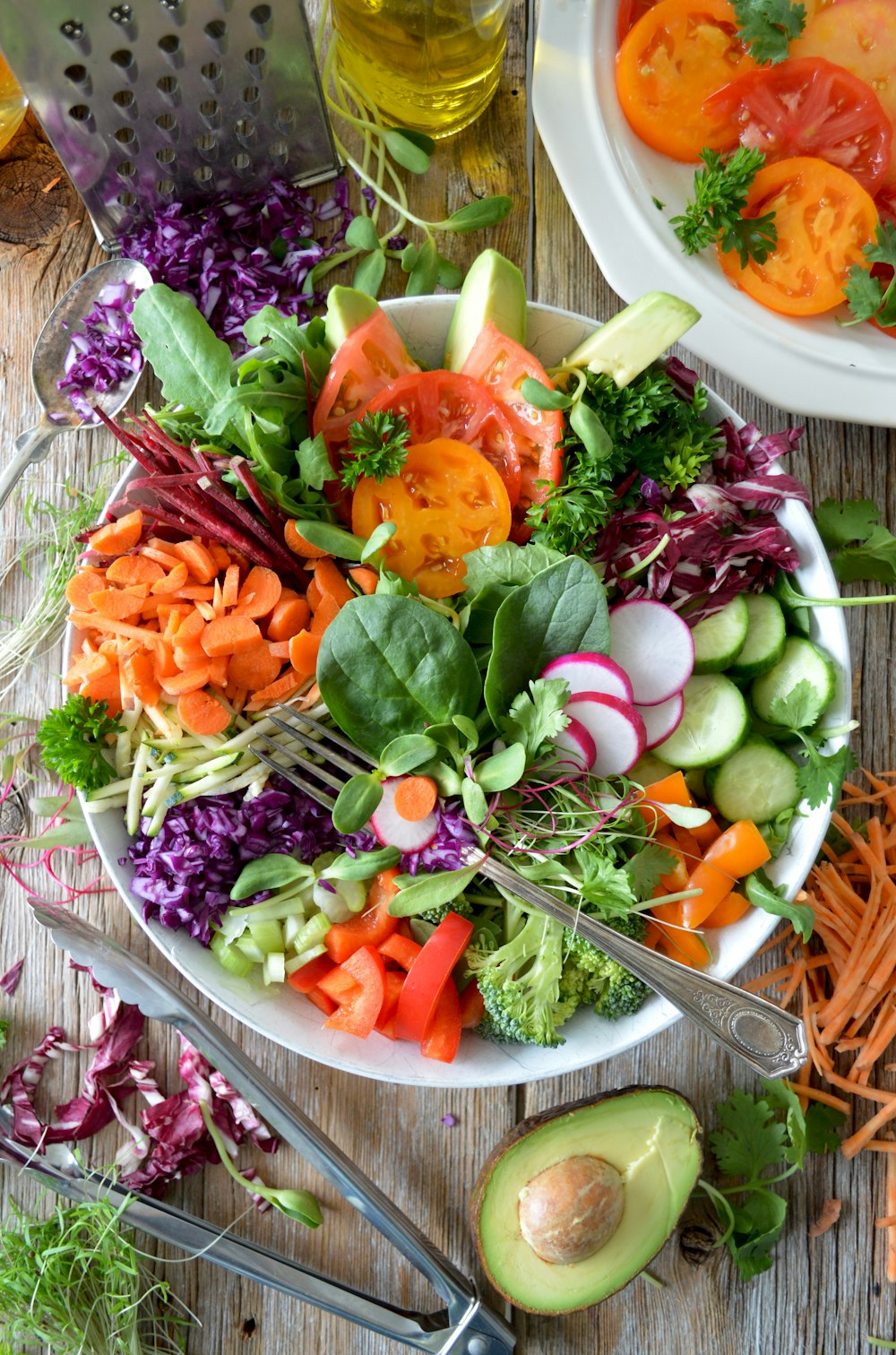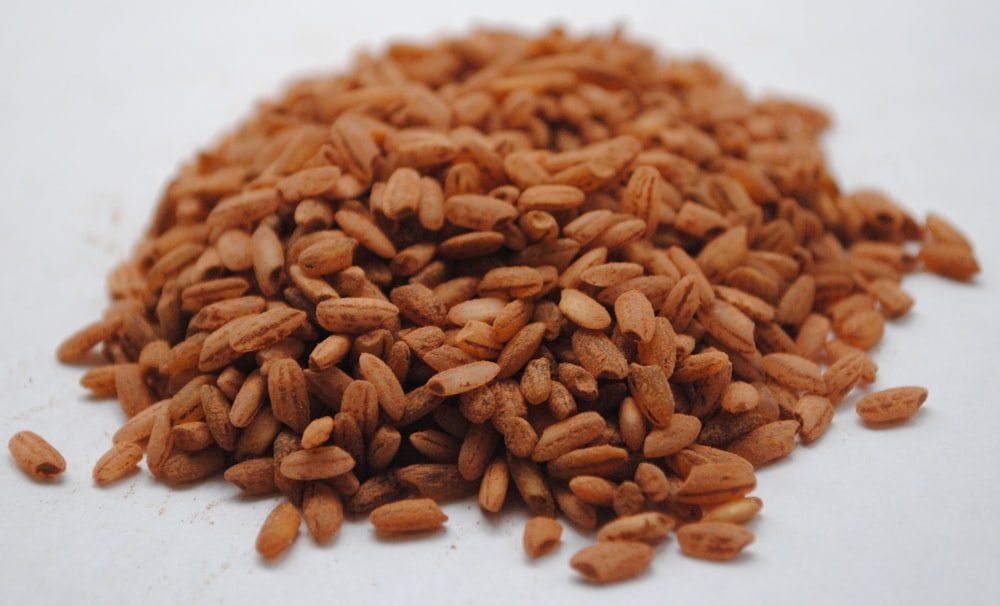Improve Your Digestion and Relieve Your Belly Woes

Regular digestion is essential for a healthy life: having a well-functioning digestive system is the first requisite to keep your body functioning at its best. When your stomach and bowels are in optimal shape, you’re full of energy, less nervous, and more motivated to go through your daily tasks. On the other hand, if you have any digestive disorder or experience belly woes, you may feel nervous, unfocused, and constantly tired.
Problems in your digestion very rarely stick to your gastrointestinal system. Slow and difficult digestion often leads to irritability, weight gain, difficult concentration, and trouble sleeping. If you’ve ever had a sleepless night after a heavy meal, you know what I mean. To improve your overall well-being, you need to know what practices to adopt and what food to eat to strengthen your digestion.
Though some digestive disorders can be hereditary or related to genetics, many of them arise from an unbalanced diet or unhealthy lifestyle, so there’s a lot you can do to improve your digestion and relieve your belly woes.
What are digestive problems?
Digestive problems are a broad set of disorders related to your gastrointestinal system. They occur when your stomach and bowels are irritated or don’t function properly. The most common symptoms of digestive problems are nausea, heartburn, upset stomach, diarrhea, and constipation. As said before, they can give birth to several related problems: the most common are chronic fatigue, inability to concentrate, trouble sleeping, and emotional imbalances.
There’s a wide variety of digestive problems, and you might wonder when you need to worry and consult a doctor. First of all, what you need to know is that digestive problems can be sporadic and happen just once in a while, or they can become periodic: in such cases, a digestive problem can be the symptom of a disease.
That’s why you need to have a clear picture of the leading causes of bad digestion and what triggers a digestive disorder. In general, if your symptoms appear under certain conditions, there should be something that triggers them.
What are the main causes of digestive problems?
Poor chewing
A common adage says that digestion starts in the mouth. Digesting means breaking down the food you eat into the macro and micronutrients your body needs: therefore, you need to reduce the food into small pieces to absorb the nutrients properly. If you don’t chew the food properly, your organs (especially the stomach) will need to do more work to break it down, and your digestion gets slower.
Heavy meals
After a dinner heavier than usual, we all can experience restless nights, afternoon sleepiness, abdominal pain, or bloating. These unpleasant symptoms happen because your stomach gets swollen when you eat more than usual (since it’s not used to digesting a big amount of food). As a consequence, your digestive tract needs to work more.
Food that causes gas
Beans, chickpeas, broccoli, cauliflower, dairy products, mushrooms, onions: these foods are primarily responsible for gas production, and eating much of them can make you feel swollen and increase bloating.
Food that causes heartburn,
such as chocolate, alcohol, caffeine, mint, garlic, onions, and spicy food.
Food that can irritate your bowels
among them, alcohol, caffeine, chocolate, spicy food, and red meat.
Food intolerances
Food intolerances happen when your organism isn’t able to digest and absorb certain food, which, in turn, becomes harmful to your body. Think about celiacs. They cannot digest gluten: when they eat it, their body gets inflamed, and their digestion becomes longer and more difficult. People who have food intolerance often have difficult digestion if they eat such food because their body is trying to digest a nutrient they cannot absorb. General symptoms of food intolerance are bloating, tummy pain, and diarrhea. The most common food intolerances are gluten and lactose intolerance, but there are many more. Diagnosing a food intolerance can be tricky, and you may need to see a specialist to do it.
Food allergy
Food allergies happen when your immune system reacts to a specific food you ate. Unlike food intolerances, food allergies happen after eating just a small amount of the food you’re allergic to, and symptoms appear quickly and can be extremely severe. Common food allergies include fish and nuts allergies. Allergies can be serious and life-threatening, so you shouldn’t underestimate them.
Cigarette smoke
Smoking can harm your digestive tract in several ways. It increases your acid reflux, your risk of developing Crohn’s disease, gallstones, ulcers, and cancers of the digestive system.
Stress
We all know stress is harmful to the body – and the digestive system in particular. That’s intuitive, after all: how many times have you needed to make a decision under pressure, and you’ve felt the butterflies in your stomach? When you’re nervous, you lose your appetite, and you may experience tummy pain, constipation, or diarrhea. Stress affects your digestive system in many ways: it increases the acid in the stomach and causes esophagus spasms. But, most of all, it has a direct consequence on your bowels. Studies show that your gut and your brain are deeply linked: your nervous system partly controls your gut (also called “the second brain”), so whenever you’re stressed, nervous, or worried, it gets directly influenced.
As you can see, it’s relatively easy to improve your daily life by making some changes in your habits. If you know you’re intolerant to a specific food, you can avoid it. If you’re prone to have heartburn, you can eliminate all the food that triggers it. In general, you can improve your digestion with specific and practical lifestyle changes.
Said that, if you adopt bad habits over a long period, your symptoms can worsen and even become chronic, leading to gastrointestinal disorders. It’s essential to mention that digestive problems are often a signal that there something going wrong in your digestive tract: if you tend to experience periodic symptoms like nausea, heartburn, diarrhea or constipation, bloating, or abdominal pain, you may have a gastrointestinal disorder and you should see a specialist.
Most common gastrointestinal disorders and their treatment
Bad digestion can happen to everyone. A meal heavier than usual, food intolerances, or a stressful period can trigger digestive problems. The good news is that there’s a lot you can do to improve your digestion. But, when you experience daily digestive disorders, you may have a chronic gastrointestinal disorder that needs further investigation. According to data, more than 40% of persons worldwide have gastrointestinal disorders.
What are the most common gastrointestinal disorders? Let’s break it down.
Gastrointestinal reflux
Also called acid reflux, this condition happens when stomach acids go back to your esophagus. It often occurs after meals or when you’re lying down, and you can experience a burning pain in the middle of the chest. Acid reflux can become chronic if it happens every day or at least twice a week.
Symptoms of acid reflux are bad breath, nausea, heartburn, trouble swallowing.
To treat it, you should:
- Avoid foods and beverages that increase your stomach’s acidity.
- Take antacids or similar medications that can noticeably reduce your symptoms.
- Use a high pillow (or even two pillows) when you sleep.
- Don’t lie down right after a meal.
- Avoid tight clothes.
- Quit smoking.
Irritable bowel syndrome
Irritable bowels syndrome (IBS) is a common gastrointestinal disorder (it’s estimated that 10-15% of the population worldwide has it) and can lower the quality of your daily life.
IBS is characterized by abdominal pain and irregular bowel habit. You can have chronic or recurrent diarrhea, constipation, or alternate both. The exact cause of IBS is unknown; however, stress appears to worsen its symptoms.
Dealing with IBS can be emotionally draining, as it may impact your social and professional life: its symptoms are unpredictable and may appear out of a sudden. In this way, they limit your personal and professional activities.
To treat irritable bowel syndrome, you should:
- Eat food rich in fiber, such as fruit, vegetables, and whole grains.
- Drink plenty of water.
- Have a low-fat diet.
- Avoid alcohol, caffeine, and foods that increase gas production.
- Eat lots of probiotics (rich in healthy bacteria).
- Reduce stress.
- Quit smoking.
Hemorrhoids
Hemorrhoids happen when the end of your digestive tract becomes inflamed and lead to bleeding after a bowel movement. They can be very painful and itchy; most often, they’re caused by constipation, straining during bowel movements, lack of water, and a diet lacking in fiber.
Treatment for hemorrhoids includes:
- Eating more fiber.
- Drinking more water.
- Doing regular physical activity.
- Apply topical creams or suppositories.
- Avoid alcohol, caffeine, fried foods, and smoking.
- Consider surgery if at-home treatments don’t help.
Crohn’s disease
Crohn’s disease is one of the so-called “inflammatory bowel diseases (IBD).” Its symptoms are abdominal pain, diarrhea, weight loss, and rectal bleeding. There’s no knowledge of what causes this syndrome, but it might be related to genetics and family history.
To properly treat Crohn’s disease, you should:
- Avoid carbonated beverages, alcohol, coffee, and red meat.
- Use pain relievers or immunosuppressants.
- Consider doing surgery.
These are the most common gastrointestinal diseases, but many others aren’t discussed here. If you suspect you may have any gastrointestinal problem, you should consult a specialist who can diagnose your disease and set up specific treatment.
How to improve your digestion?
Whether they’re sporadic or related to a chronic condition, there’s a lot you can do to improve your digestion. You can tackle digestive problems by making specific changes in your lifestyle.
Act on your diet
The food you eat is the primary cause of how your digestion works. Your stomach doesn’t perform well if you introduce food requiring long digestion or you don’t chew the food enough.
The first, most intuitive strategy to improve your digestion is to eat light meals. It’s better for your digestive system to reduce the amount of food you eat at each meal and to have frequent meals.
Here are some additional tips to act on your diet to strengthen your digestion:
- Eat fewer snacks, fried food, and processed food. These foods are loaded in trans fats and refined sugars: besides being harmful to your health, they’re also difficult to digest and make you feel swollen.
- Eat more fiber. You’ve probably heard this everywhere: fiber – the part of the food that your body isn’t able to digest or absorb – is essential as it regularizes your bowel movements, prevents constipation, and helps you live a longer and healthier life. You can find it mainly in fruits, vegetables, whole grains, and legumes.
- Drink plenty of water (at least 2 liters per day). Water improves your stomach’s functioning and your bowel movement. Hot water brings the additional benefits of relaxing your stomach’s muscles and speeding up your digestion. You can drink two or three cups of hot water per day; to enjoy them more, drink them as an infusion or herbal tea. The best herbs for your digestive tract are fennel, ginger, lemon, and licorice.
What are the best foods to improve your digestion?
Whole grains
Whole grains are rich in fibre and are an excellent alternative to refined flour. Whole-grain foods include brown rice, whole-wheat pasta, and barley. Try to have at least half of your daily carbs intake as whole grains.
Fermented food,
such as yogurt, kefir, and sauerkraut. Due to fermentation, this kind of food is rich in probiotics, and it’s a powerful ally to improve the good bacteria in your gut.
Fennel
Fennel is rich in fiber and has anti-inflammatory properties. It relaxes the muscles in your stomach and intestines and reduces bloating, thus leading to better digestion. To fully enjoy its benefits to your digestion, boil some fennel leaves for some minutes and drink the infusion.
Ginger
One of the most common treatments for nausea, belly woes, and upset stomach. You can either boil some roots in water or use ginger tea bags.
Rice
Rice is one of the best home remedies when you have an upset stomach. Eating a hot plate of boiled rice can relieve an upset stomach and reduce nausea.
What food should you avoid?
Some of the foods that irritate your stomach and gut include:
- Spices
- Processed food and pre-packaged food
- Fried foods
- Vinegar and citrus fruits
- Chocolate
- Sweeteners, such as fructose
- Alcohol
- Caffeine
We can say much more about what to eat and what to avoid when you have digestive problems. However, everyone is different, and there’s no golden rule. What works for you can be harmful for someone else. A good practice would be to have a food diary and write down what you eat every day. In this way, it will be easier to relate your symptoms to some specific food you ate, and you’ll know what to avoid to feel better.
Do physical exercise
Physical exercise can help your digestion. By moving, you increase blood flow to your digestive organs, and you strengthen your digestive system. There are, however, some precautions you need to take. When you exercise, the blood flows to your muscles to assure constant oxygenation; thus, your stomach receives less amount of blood. That’s why doing sport right after a meal can be counterproductive: you can experience nausea, abdominal pain, or even vomiting.
But this doesn’t mean you should avoid physical exercise! Regular physical activity can help you improve your digestive tract and get rid of constipation. How to effectively experience exercise’s benefits?
- Eat two or three hours before exercising.
- Try not to do a heavy exercise right after a heavier meal.
- Prefer food you can digest easily, like fruit, dried fruit, and carbs. Avoid proteins and high-fat meals.
- If you want to do some exercise after a light meal, you can go for a brisk walk.
Some physical activities you can do to improve your digestion include brisk walking, gymnastics, yoga, tai chi, swimming, and jogging.
Relax!
I’ll never get tired of stressing about how relaxing is essential for your overall health. Being in a hurry and experiencing constant tension can lead to a plethora of unpleasant effects. And such consequences can directly affect your digestive system. But how to relax properly during your busy and hectic days?
- Try breathing techniques. There are plenty of breathing techniques; one of the easiest you can do is close your eyes and breathe in counting up to four and then keeping your breath (still counting up to four). Breathe out and count up to four. Repeat the cycle. Remember to find a quiet place and wear comfortable clothes to maximize the exercise's effects.
- Do meditation. Meditation helps you focus on the present moment, declutter your mind, and see the events in your life from a different perspective.
- Do yoga or tai chi. These practices help you increase your body’s flexibility and reduce your stress levels.
Eat mindfully
As said before, when you eat too fast or you don’t chew food properly, your stomach gets more work to do. Good digestion starts with mindful eating. I know, sometimes it can be difficult to find the time to have your lunch break, and you end up eating a sandwich or gulp down some snacks. But setting up at least 30 minutes to quietly enjoy your food is vital.
In addition, try to eat slowly and savor every bite. Focus on what you eat and chew the food carefully (at the beginning, you can count the numbers of chews you do: it will help you concentrate on your eating).
Avoid unhealthy habits like smoking and drinking
Unhealthy habits such as smoking and drinking alcohol increase your acid reflux and increase the risk of irritable bowel syndrome. It’s essential to limit your alcohol intake and avoid (or quit) smoking if you’re experiencing digestive problems.
Incorporate supplements into your diet
Dietary supplements can help you strengthen your digestive tract: probiotics are the most effective because they increase the amount of “good” bacterias in your body.
Our Total Gut Solution is a digestive support supplement designed to improve your digestion, maintain a healthy weight, and strengthen your immune system. It contains three of the most important bacteria strains found in your gut (Probiotic Bacterial, Bacillus Subtilus, and Lactobacillus Rhamnosus): their role is to break down the food you eat and help your body absorb the nutrients properly. The probiotic comes in a special capsule that allows the bacteria to survive the stomach acids and preserve its features.

Thanks to its formulation, Total Gut Solution supports a healthy digestive system so you can experience proper bowel movement, appetite reduction, and natural weight loss. Check with your family doctor and ask if you could take dietary supplements as such.
See a doctor
When you experience chronic symptoms, you may have some gastrointestinal disorder (see above). In these cases, it would be better to consult a specialist to make a diagnosis and set up proper treatment.
Take over-the-counter medications as recommended by your family doctor
If you have digestive problems, you can consider taking over-the-counter drugs to get rid of belly woes. Several medications are addressed to reduce bloating, nausea, abdominal pain, and improve digestion: chewing probiotics, acid-reducing capsules, multivitamins, or effervescent antacids. Remember that those drugs can interfere with other medications, so you should always read the label and consult a doctor if necessary.
How to improve your digestion? A wrap-up
- Regular and healthy digestion is essential to maintain a robust immune system and reduce your risk of chronic diseases.
- Digestive problems can be caused by an unhealthy diet, inadequate chewing, smoking, alcohol abuse, food intolerances, or stress.
- The main symptoms of bad digestion include nausea, upset stomach, heartburn, constipation, diarrhea, abdominal pain, and bloating.
- Gastrointestinal disorders are chronic conditions and can be caused by both hereditary and lifestyle-related causes.
- Diet is the primary reason for bad digestion and belly woes.
- Prefer light and frequent meals over heavy lunches and dinners.
- Increase your intake of fermented food, whole grains, fruit, and vegetables.
- Avoid spicy food, fried foods, trans fats, alcohol, and caffeine.
- To improve your digestion, do regular exercise, reduce stress, and eat mindfully.
- Take dietary supplements (in the form of probiotics) to increase the number of good bacteria in your body.
- See a doctor if you experience symptoms that don’t go away or suspect you have a gastrointestinal disorder.











